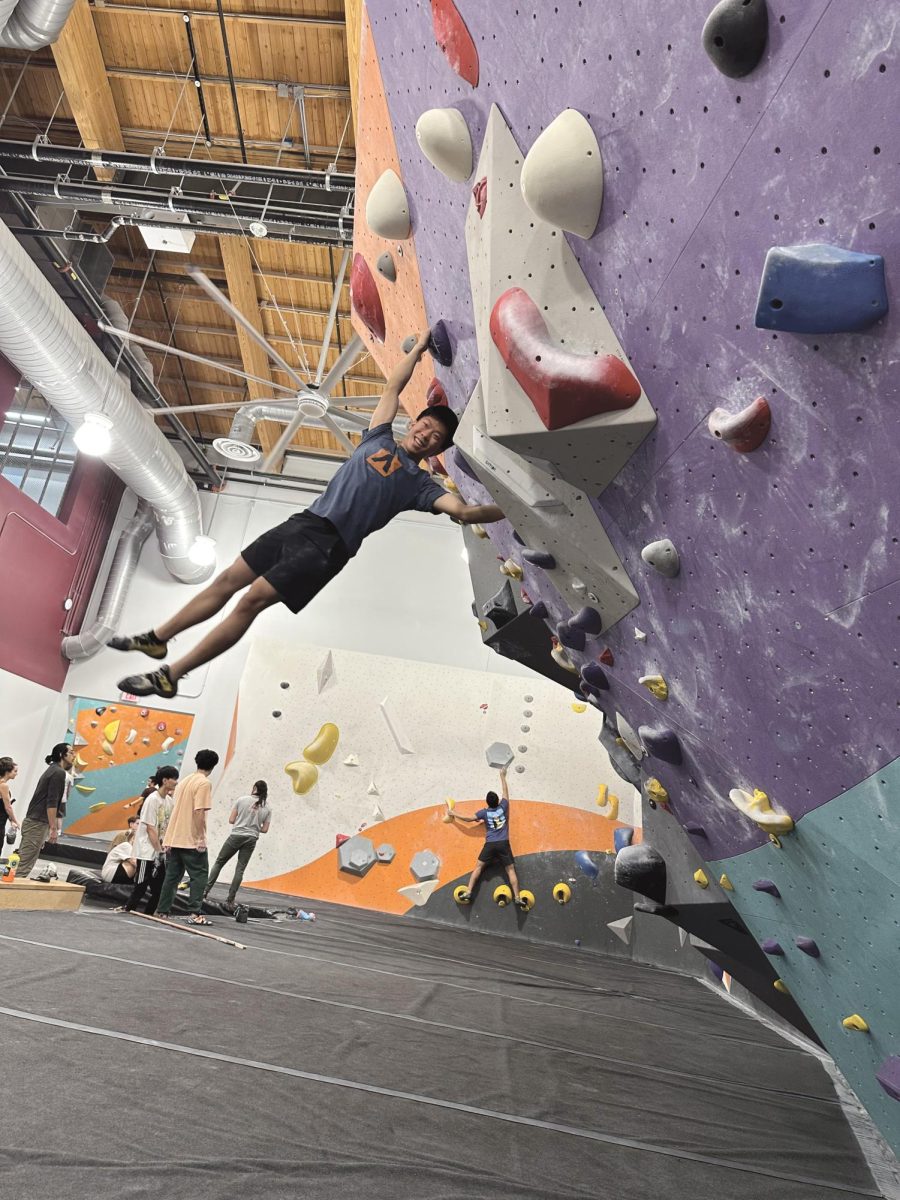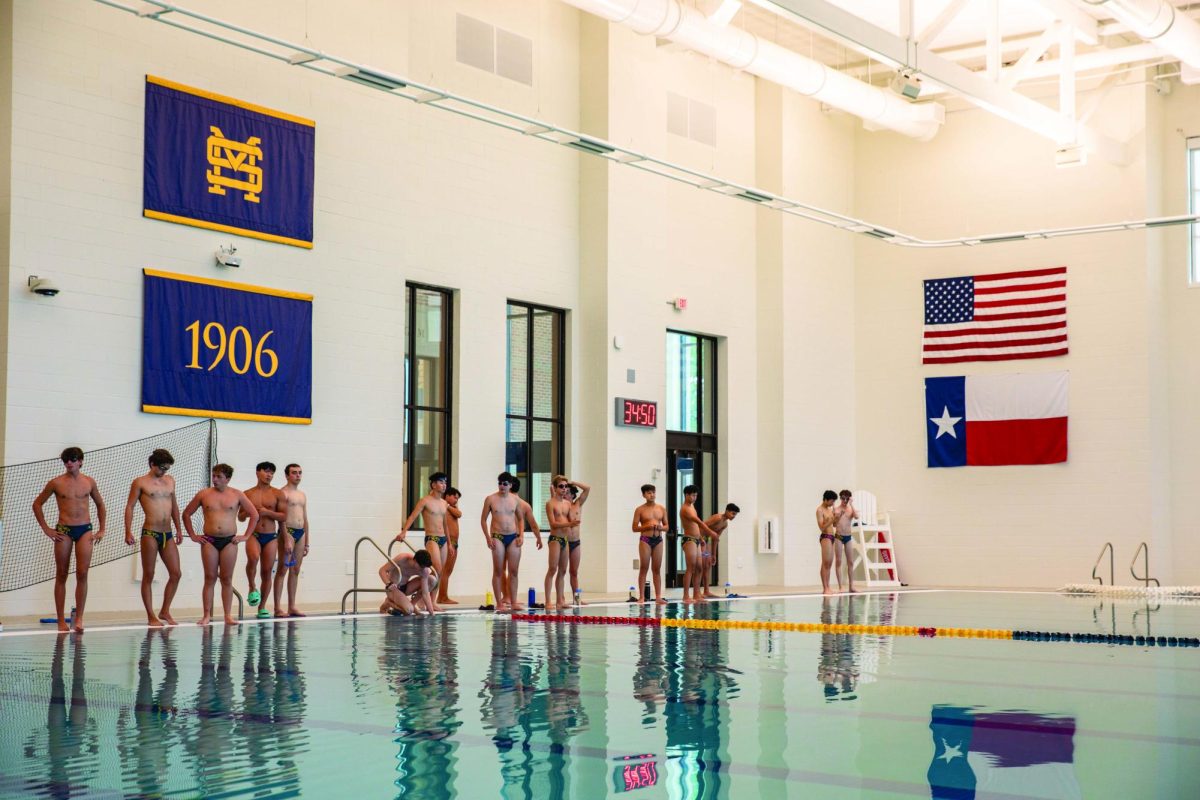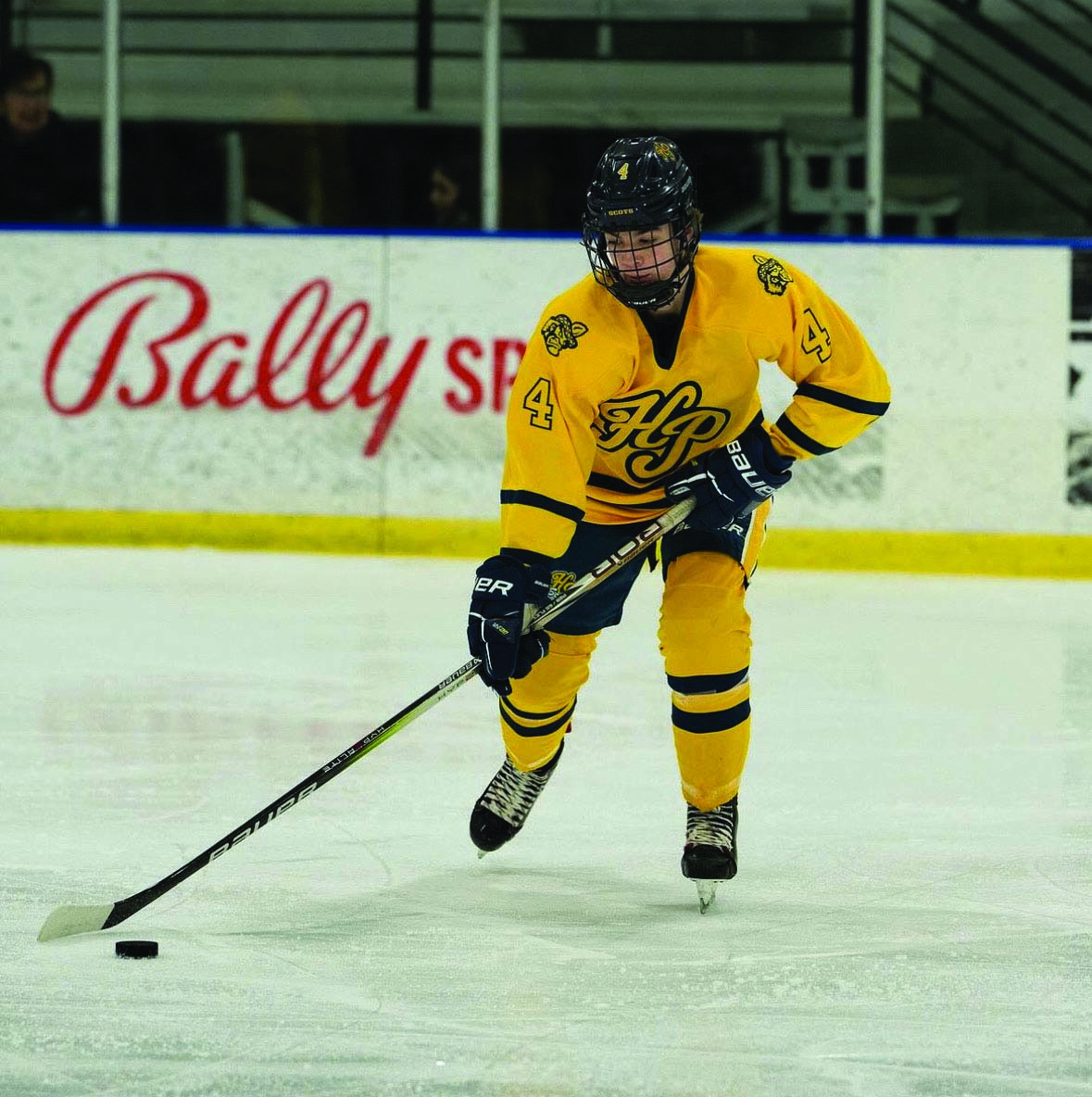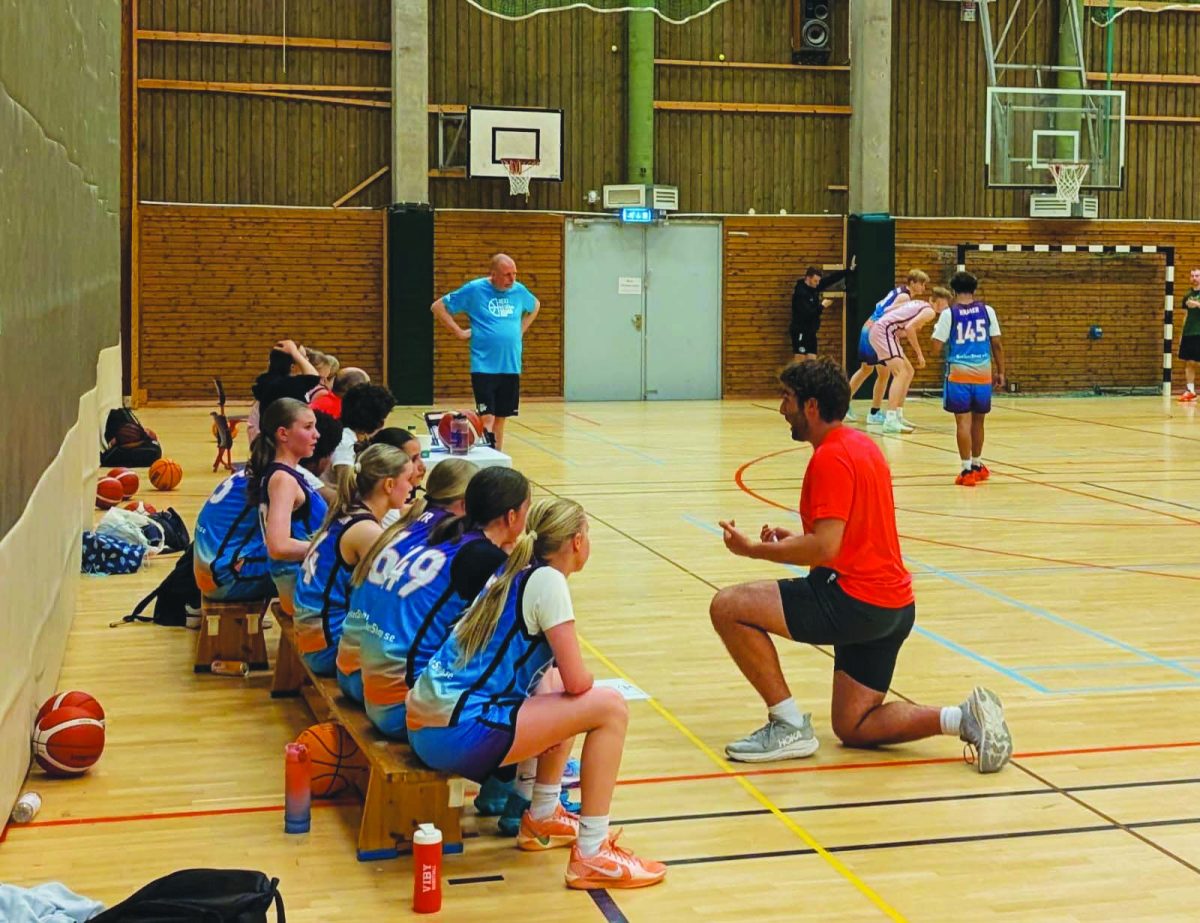Rock climbers like to keep it simple.
While many sports involve complex strategies and mechanics to ensure an entire team’s success, rock climbing is different.
In that sport, it’s just the climber and the wall. Binary, balanced and natural. Climbing is a natural skill, after all. Human hands and bodies, at least on some level, are built for it.
Nowadays, rock climbing is widely treated as a hobby; gyms around the country exist for experienced climbers and newcomers alike.
But for junior Andrew Jin, climbing is much, much more.
After hearing about the sport from family friend and alumni Darren Xu ’22, Jin decided to try it out at a summer camp.
“When I learned that (Xu) was climbing, I thought, ‘OK, maybe I could do that’,” Jin said. “ I was going to the Hockaday summer camp at the time, and they offered climbing as something we could do.”
Jin’s willingness to try climbing for the first time instantly paid off.
“I remember the first time I went there, I first-tried a 5.9 grade route (usually an intermediate route)” Jin said. “I was 11 back then, and I thought ‘Huh, this is pretty cool’. So, I did it again next summer.”
Jin’s light and limber frame helped him grow quickly into the sport. Within a year of that fateful first attempt, he had joined a climbing team at the now-closed Summit Dallas climbing gym.
“The next step up from recreational climbing is a regional gym team, like Team Summit,” Jin said. “They’re just gym-specific, and the skill-base is slightly higher. Normally, you’d see some pretty young kids taught by rock climbers in their early twenties.”
Jin’s stint at the regional level didn’t last long, though. He was progressing so quickly that within six months, he was able to join Team Texas, a nationally competitive rock climbing team. Teams like Team Texas practice in gyms over a wide area, and they often feature rigorous conditioning to improve their climbers’ skills.
This leap into the climbing world and climb to the top of it took a toll on Jin’s schedule. He went from being a recreational climber to devoting four hours a week to Team Summit. Then, when he joined Team Texas, he started practicing three hours a day, five days a week, constantly trying to improve his craft.
“Looking back on it, I don’t know how I found the time to (practice that much)” Jin said. “I was just climbing so much. I got my homework done, and then I went climbing. I didn’t really care that my body was doing strenuous training, because I figured ‘you know what, I’ll be fine’.”
During his time at Team Texas, Jin worked through struggles with his time management and his physical health – especially in relation to the sport. The only thing that didn’t change was Jin’s commitment to climbing.
“Team Texas requires that level of participation as a nationally competitive organization,” Jin said. “I was climbing so much despite my joints hurting a lot. When I was climbing, I didn’t feel it. However, when I came down, I couldn’t even hold pencils anymore.”
Due to his increasing school workload, coupled with his deteriorating finger health, Jin decided to take a step back from the team. Although this move helped heal his fingers, Jin still wanted nothing more than to be in the gym and climbing.
“The coaches were all really supportive of it, but I felt from a financial standpoint, it might have been a liability, because you have to pay to be on the team,” Jin said. “Also, from a health perspective, having Team Texas as an option meant that I just couldn’t stop myself from climbing. Even after I left the team, I’d go to a climbing gym and tell myself ‘Ok, I’m not gonna hurt my fingers’, and then I’d hurt something else.”
That constant desire to go climb has captivated Jin for the last six years of his life. For him, each wall and each designed course presents a new challenge to conquer.
“It’s weird to describe it to someone who doesn’t climb, because it sounds like an addiction,” Jin said. “For me, there’s something special about being with yourself and seeing what you can do on the wall.”
Jin derives pleasure and inspiration from the idea of this solitary competition, with him pitted against the wall in a constant struggle.
“There’s something about the atmosphere – the smell of chalk, putting on the climbing shoes, the people cheering you on,” Jin said. “But, more deeply, for me, it’s like every time I go climbing is another test of who and what I am at that moment.”
Once on the wall, Jin is completely focused and keyed in on his goal of reaching the top, willing to ignore any other circumstances to edge closer to that achievement.
“It’s almost like I’m in a flow state, but also comprehending and fully lucid,” Jin said. “It makes all pain bearable, because reaching the top of that wall is just so fulfilling.
Even after Jin left Team Texas, he still goes multiple times a week to the climbing gym to continue improving his skills and have some fun.
“I don’t try to look for things that will be painful and hurt my fingers, but I look for fun routes that I know are going to be hard,” Jin said. “When I go to climb, I look for what’s at the edge of my capability and try to see if I’m there yet.”
Although he’s no longer in competition, Jin foresees a long-lasting presence of climbing in his life wherever he is.
“I think (climbing) is going to be a lifelong experience and a lifelong pursuit of mine,” Jin said. “It’s something that I can always return to, no matter how much time I spend away from it.”
The growth of unique sports: rock climbing
April 19, 2024
Categories:
MOVING UP Junior Andrew Jin scales a wall at his local climbing gym.
More to Discover
About the Contributor
Neil Yepuri, Assignments Editor








